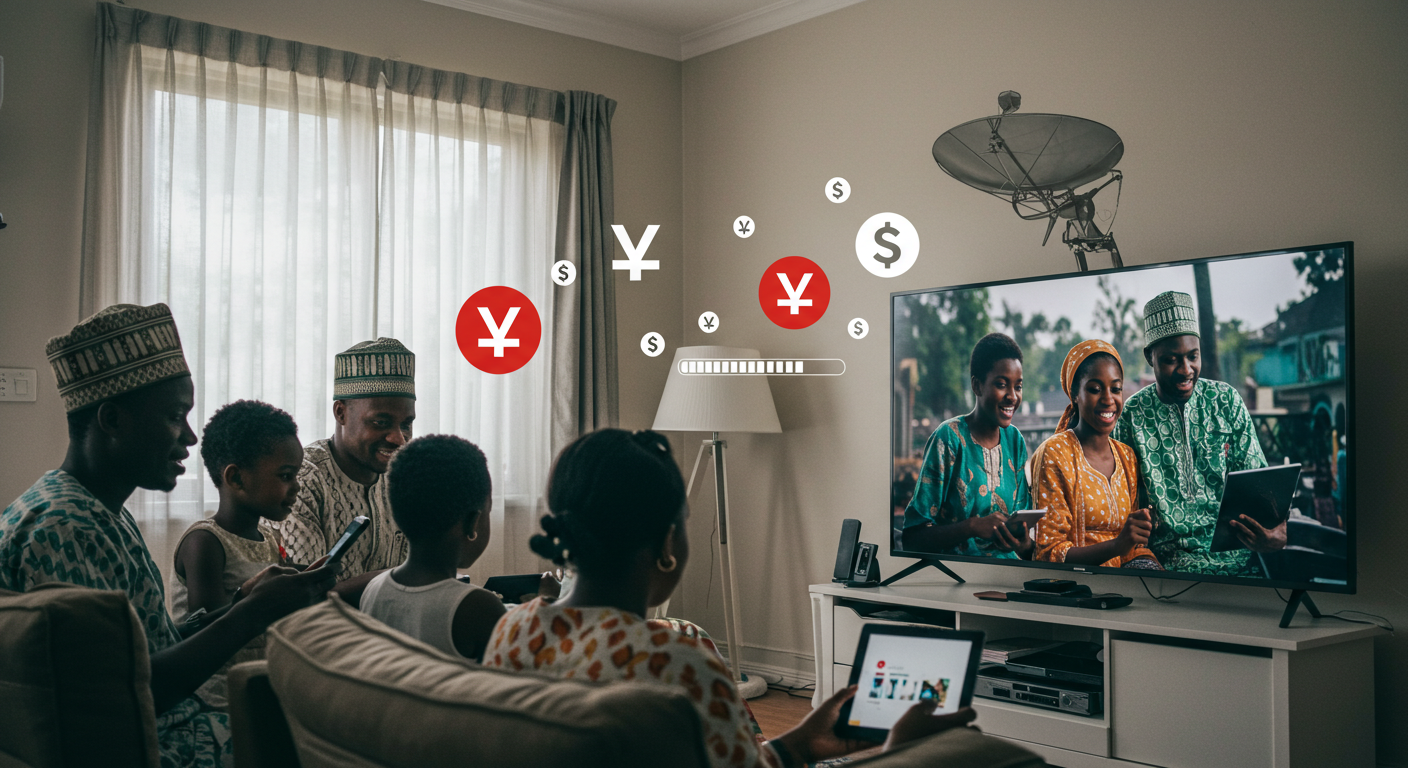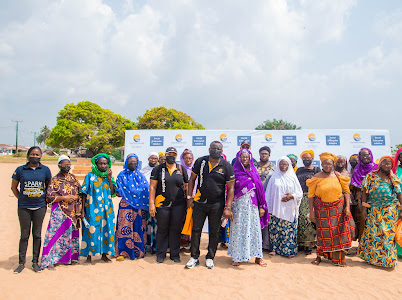In living rooms across Nigeria, the satellite dish is fading into history. Families are abandoning cable subscriptions and turning to smart TVs, tablets, and mobile phones as their main sources of entertainment and information. Sunday services now stream on YouTube, Nollywood blockbusters arrive at the click of a button, and TikTok binges stretch long into the night. In this new reality, data has replaced the traditional television subscription.
Yet convenience carries a cost. What once covered a full month of cable TV now barely lasts a week of internet use. Nigerians are streaming more than ever, but they are also paying significantly more for it.
The Price of Connection
The numbers tell a striking story. Nigeria’s monthly internet bill jumped from ₦176.87 billion in 2017 to ₦721.18 billion by July 2025—a staggering 307% rise. Two key forces drive this shift: soaring demand and long-overdue price adjustments.
The average cost of one gigabyte of mobile data rose from ₦287.5 in 2023 to ₦637.5 in 2025. At the same time, video streaming, online learning, and remote work pushed consumption to record levels. The average Nigerian now uses 8.15 gigabytes each month, more than double the usage of just two years ago.
Winners and Losers
For telecom companies, this surge has created extraordinary opportunities. In 2024, MTN earned ₦1.59 trillion from data, while Airtel crossed $654 million in revenue. YouTube has also cemented its role as Nigeria’s unofficial national broadcaster, with its revenues doubling in 2024 alone.
For millions of Nigerians, the story feels less triumphant. Households now ration their data. Small businesses struggle as rising costs eat into profits. Between January and July 2025, 3.41 million subscriptions vanished, showing that affordability—rather than access—remains the real barrier to digital inclusion.
The Bigger Picture
The government is racing to address the challenge. It has earmarked $2 billion to lay 90,000 kilometres of new fibre optic cable. The goal is to push broadband penetration beyond its current level, which still lingers below 50%.
Yet obstacles remain. At least 20 million Nigerians stay offline, excluded from the digital economy that powers jobs, education, and social mobility.
Global comparisons sharpen the contrast. While 68% of the world’s population is online, the International Telecommunication Union reports that only 38% of Nigerians use the internet daily. This digital divide represents billions in lost opportunities for individuals, businesses, and the wider economy.
The Road Ahead
Nigeria stands at a crossroads. Data has become the nation’s lifeblood, but it risks turning into a privilege for the wealthy. Karl Toriola, CEO of MTN Nigeria, noted: “The demand for data in Nigeria is exceptional and will continue to grow.” The question is whether infrastructure, regulation, and pricing can keep pace.
The satellite dish may no longer define Nigerian living rooms. Yet access to affordable data must not become a luxury. As streaming, studying, worshipping, and working continue to shift online, the future of Nigeria’s digital economy will not be shaped by the desire for data. That desire is already there. It will be determined by whether the average Nigerian can truly afford it.
ALSO WATCH MARKETING EDGE ONTV







Comment
No comments found.